What Your Inner Child Needs to Hear, Based On Your Enneagram Type
There is plenty of psychology surrounding the idea of an “inner child”: the part of our subconscious that never really got over the messages it picked up before it could fully develop and learn discernment. If you were shown compassion, patience and acceptance as a kid, you have a relatively healthy inner child.
But if you were raised without those things, you’ve either had to work on healing your inner child or are still suffering from harmful messages in your subconscious. Consciously, you know that you’re valuable and have good qualities. But subconsciously, you struggle with knowing your worth.
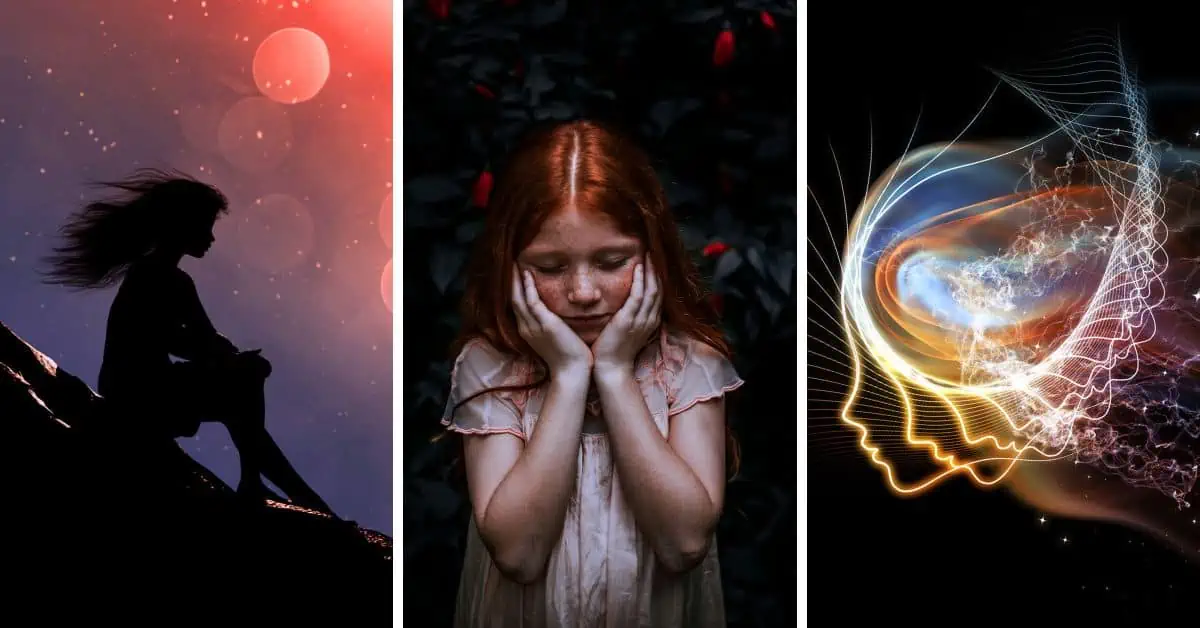
Healing your inner child takes the work of self reflection. In some cases, it requires therapy. But you can begin by telling yourself truths that dispel those unhealthy subconscious thoughts.
Today, we’re going to go over a truth that each Enneagram type’s inner child needs to hear.
Note: Not every person in each Enneagram type has the same childhood. For example, most Twos were made to feel as if they had to give love to get love – but not all Twos. This article will go over the most common negative childhood experiences for each type. If it does not describe your very nuanced experience 100%, that is okay.
Not sure what your Enneagram type is? Take our free questionnaire here
What Your Inner Child Needs to Hear, Based On Your Enneagram Type
Type One: Perfection is a burden you don’t have to bear.
As a child, you struggled with the authority figures in your life. You were made to feel “bad” or “wrong” for being a kid and making mistakes, and were tasked with the overwhelming weight of being perfect so that someone above you would approve of you. Maybe your parents didn’t intend this, but it was the messaging that naturally stuck out to you.
And you tried your best, succeeding many times. You grew used to the praise of being “mature” for your age, or a “little adult”. But even though these compliments made you feel good, you got to a point where messing up made you feel worse. Your peers could mess up, and it would be expected from them, but you couldn’t make a mistake.
That pressure is heavy. You didn’t deserve it then, and you don’t deserve it now. As a kid, you were bound to make mistakes – you were meant to make them. And you deserved loving patience after you did.
Stop blaming yourself for every problem around you – all you can control is yourself. I know it didn’t feel that way when you were a kid and wanted to save the world by being a perfect version of yourself, but you are not responsible for the actions of others.
Find out more: The Enneagram 1- The Perfectionist
Type Two: You are worthy of love, just as yourself.
As a kid, you had the overwhelming feeling that your needs were on the backburner. Everybody else needed, and demanded so much. Everybody else had their own agenda. So you put aside your dreams, and your plans, and your feelings, just to make room for others’. You were probably taught the value of selflessness; but to a degree that made you feel empty and invisible unless you served.
Whether it was through a toxic parent or a bad friend group, people expected you to show up for them. You parented people when it wasn’t your responsibility and took up the burdens of people who weren’t even trying to carry their own.
When you said that you needed anything, you often felt that were ignored. When you talked about your day, it felt like people didn’t listen. The only way to keep people looking at you was to ignore yourself and pay attention to them: their needs.
But you were a kid. You weren’t qualified to “parent” or “fix” anyone. If anything, you needed to be taken care of. You had so much to say, and you needed people to listen to you. But they didn’t, and that’s their fault, not yours.
You, as yourself, are as worthy of being loved and listened to as everybody else is. Good people will appreciate you for who you are, not what you can bring to the table. You are not tasked with the responsibility of entertaining people. You are meant to love and be loved – and both should be beautiful things.
Find out more: 21 Signs That You’re an Enneagram 2 Type
Type Three: You are not your accomplishments.
Your parents meant well. They saw that you were talented, athletic or smart. They tried to nurture that seed in you, holding you to a high standard and seemingly revoking their love when you didn’t meet it. And in a sense, it worked.
You’ve done so many things. You’ve run so far and you have so many trophies. On the outside, you may be everything they wanted you to be. But on the inside, it feels like you haven’t done anything. You feel like an impostor. You’re itching to reach the next goal.
That’s because you got the message that in order to be truly happy and truly loved, you needed to keep achieving more. Somewhere in your environment you were taught that you needed to be better than everybody else; and if you weren’t, love felt snatched back.
You were trying your best. You try so hard, and it feels like nobody sees it. You worry that if you stop trying so hard, people will leave. But they won’t. The people in your life love you, not what you’ve done. They haven’t stuck around this long because they admire your job, or your popularity. They love you. Everything you are.
You were a living, breathing person, just like everybody else. You deserved a childhood. You deserved moments when you weren’t held to any meaningless standard – just left to exist. And you still do.
Find out more: 21 Signs That You’re an Enneagram 3
Type Four: There’s nothing wrong with you.
You have always been so sensitive to losing things. Whether it was a classmate’s attention, or your parents’ patience, any small loss hurt you deeply.
When bad things happened to you, your first instinct was to blame yourself. What else could it be? You were just too weird, too emotional, too yourself, and you chased good things away. You began to subconsciously associate yourself with the attraction of bad things.
You felt like you didn’t know how to be human. Everybody else could get along with people and be happy, and not have to worry about who to play with at recess, but all of those things took special effort. You felt like you were the only one like that.
And now you work to prove your past self wrong by creating this big, exciting identity for yourself. You think that once you acquire that new hobby or are accepted into that friend group, you will feel whole, but you never do. You make a big deal out of how unique you are, but all the while you feel inadequate.
But blaming yourself was just little you’s way of controlling the situation. It was easy to just assume that negative things naturally flowed to you. The truth is, you aren’t under any curse. You were born into the world with thoughts and feelings, just like everybody else.
You don’t have to be ultra-special and unique to live a fulfilling life. You don’t have to prove anything to anybody. Pick up painting not because you need a new identity, but because you like creating beautiful things. Use your deep well of empathy to help other people, not look for their approval. Let yourself be fully alive.
Find out more: The Enneagram 4- The Individualist
Type Five: You don’t have to be afraid of the world.
Your environment was always too much. Whether it was family dynamics you didn’t understand, seemingly overwhelming onslaughts of schoolwork, or the crippling weight of expectations, everything seemed to be a direct attack on your well-being.
People felt overwhelming to you and that made you feel unsafe and insecure. So you did the only thing you could think to do: you retreated into your mind. Intellectualized everything. Focused on going down little rabbit holes in your head instead of facing your life.
Maybe your parents’ drama was too intense, and it intruded on your life. Maybe you had friends who overpowered you with their chaotic emotions or cliques. You tried to build hobbies, make friends, and become a person, but it felt like you couldn’t.
But now the coast is clear. Likely, you are out of the unhealthy situation and are now finally left to your own devices. There is nothing to hide from, so you can get outside your mind. Nothing will happen to you if you try a new hobby. The people in your life are not out to get you. I know it feels like that sometimes, but it’s not true.
Remember that you can face obstacles in your life without being afraid.
Find out more about Fives: The Enneagram 5 – The Investigator
Type Six: You are not in danger.
Chances are, your surroundings felt a bit unpredictable and out of balance growing up. Maybe your parents would have fluctuating moods, so you as a child didn’t know what version of them to expect. Any small thing could set them off, so you learned to be overly catering to other people. Or maybe you moved a lot, your friends were unpredictable, or life at that moment in time was just chaotic in your culture (pandemic, anyone?)
And any mistake from you – conscious or not – felt like it would turn your world upside down. That’s where you get your constant feeling of foreboding. That’s also where you get that constant feeling of distrust of authorities; whether you show it or not.
Because of all the unpredictability you absorbed, you felt like you had to foresee everything that could go wrong and prepare in advance. You learned that rumination was the key to survival. You quickly learned that it was just you against the world. Trusting people was dangerous.
You did what you could as a kid to survive. But now your mind can still sometimes make you feel like you are constantly in peril.
A thousand things can go right in any given day, but if you spend all your time ruminating about what could go wrong you will only see what went wrong and miss all the beautiful things that are going right. Take time to get to know what makes you feel safe. Maybe 5-minute meditations where you visualize something calming can help. Writing in a gratitude journal each night can help. And when you find yourself developing worst-case scenarios in your mind, end those thoughts with “And even then, it will be okay.” Because bad things can happen and will happen, but you can get through them and be strong because deep inside you have the potential to be passionately courageous once you trust yourself.
There are people in this world that want to take care of you. They want to be your friend. They will never leave you out standing in the cold. I know that you distance yourself from others to protect yourself, but no matter what you do, you can’t guarantee that people won’t betray you. You will have conflicts either way.
Find out more about Sixes: The Enneagram 6 – The Loyalist
Type Seven: You will be okay if you acknowledge what happened to you.
Chances are, you remember your childhood as a rosy, sun-tinted reel from the past. You remember the good memories and choose to remember your parents as good people. All of the things you remember are fun and light-hearted.
Well, except for that one thing. Or those few things.
As a kid, you probably faced something that shocked you so badly that you didn’t know how to process it. Maybe your parents had a divorce. Maybe you suffered abuse at the hands of someone you trusted. Whatever happened, you didn’t know how to handle it. You were just a kid, after all.
So to regain control over the situation, you reverted to an earlier stage of mental development. You became more childish and more positive, heaping on the positive memories to block out that one incident – because you didn’t have the tools to deal with it back then. You learned that distracting yourself with fun and exciting toys or possibilities or ideas felt comforting.
But what you needed was time to come to terms with what happened. It was hard, but for a kid who just wanted everything to be okay again, pretending it never happened seemed like the easier choice. You didn’t want to succumb to sadness.
Acknowledging the things that happen to you isn’t being depressing – it’s working through some hard things so that you can be happier in the future. It hurts for a little bit, but you need it. You have all the tools that you need, and you have people who will help you through the process of reflection.
Take time to acknowledge negative experiences. You owe it to your younger self.
Find out more about Sevens: 7 Struggles of the Enneagram 7 Type
Type Eight: It is okay to need things or be vulnerable.
No matter what, you have always survived. Chances are, your house was unpredictable. If you had toxic parents, you were subjected to abuse. The weakness of being completely at the mercy of unpredictable authority figures made you embarrassed and angry. And perhaps you didn’t have toxic parents but other authority figures in your life made you feel out of control and impeded on.
As you got older, you began to regain control over the situation. You learned how to avoid dangerous situations, and how to stand up for yourself when you were in them. You defended yourself first, and your siblings second. In your house, you became known as the protector.
You got older, and you kept the tough exterior to keep danger away. No matter how much you grew, you never forgot how powerlessness felt – and you promised that you’d never feel it again.
And it is so, so humiliating and terrible to be hurt, either intentionally or unintentionally, by the people who are supposed to take care of you. The people who you love, and who are supposed to love you, can inflict the most pain. Being betrayed feels embarrassing. You are valid in wanting to stay away from those feelings.
But please, never make yourself cold because of the actions of broken people. Get smarter about who you trust and maintain those survival skills, but never cut yourself off from making friends because you want to protect yourself.
I know that you still feel embarrassed about the times you were wronged, betrayed, or abused. But you have no reason to be. You couldn’t have stopped it from happening. You were a child and did what you could. In fact, overcoming the things you have overcome and still trying to be a good person is something to be so proud of.
You’ve come so far. Give yourself some credit and lower your shield.
Find out more about Eights: The Enneagram 8: The Challenger
Type Nine: You are special.
You are used to being lost in a sea of voices. You may have been the middle or younger child, fighting for recognition in a family of people who seemed much more prominent than you. You may have been the designated “good child”, tasked with knowing streaming service passwords, making sure your siblings stayed in check, and acting as a third parent.
You absorbed the feeling from a young age that you needed to give up your individuality to maintain the peace. This may have looked like giving up on childhood games to help your parents more than usual with the other kids, or staying silent so as to not mess with the family dynamic.
You were trying to keep the peace and make your parents happy. You loved being called mature or low-maintenance. But the price you paid was your individuality.
You watched as your siblings took on hobbies of their own. You missed out on social events because you wanted to help babysit, and you missed the chance to form your own unique voice because you were scared to speak up.
But contrary to the subconscious voice that tells you that you’re just a supplement to others’ lives, you have so much going for you. You have a big personality, even if you haven’t been able to show it to other people yet. Just like everybody else, you need time to have coming of age moments with your friends. Even if your talents aren’t as extravagant as everyone else’s, they’re special because they’re yours.
Helping other people is good, but you don’t have to designate yourself as The Helper to gain significance. When life gets hard and you have feelings you need to process, you don’t have to tune out of yourself and become “empty.” Take moments to practice being fully alive, fully awakened as who you are. Practice using your voice to say exactly what you want. It will feel scary at first, but you deserve this. As yourself, apart from everyone else’s life, you are unique.
Discover more about Nines: Seven Struggles of the Enneagram Nine Type
What Are Your Thoughts?
Did you enjoy this article? Do you have any thoughts or feelings to share? Let us know in the comments!
Sources:
The Enneagram Made Easy by Renee Baron & Elizabeth Wagele; HarperOne (1994)
The Wisdom of the Enneagram: The Complete Guide to Psychological and Spiritual Growth for the Nine Personality Types by Don Richard Riso and Russ Hudson, Bantam; 11th edition (June 15, 1999)


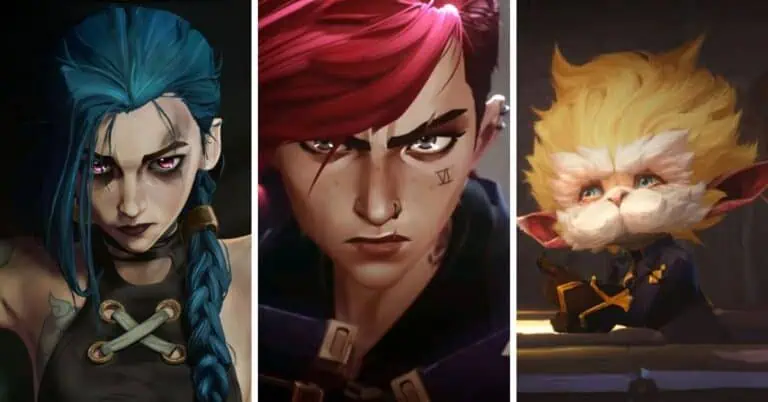
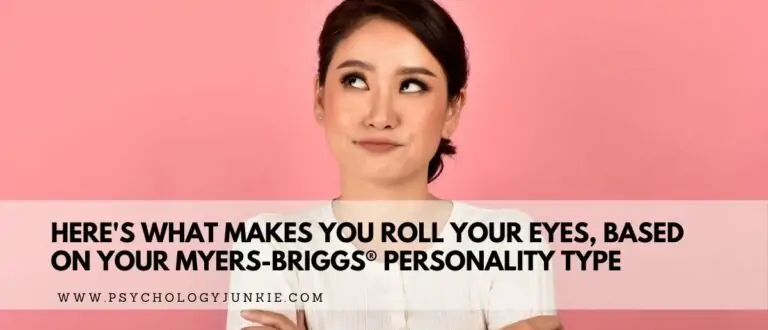

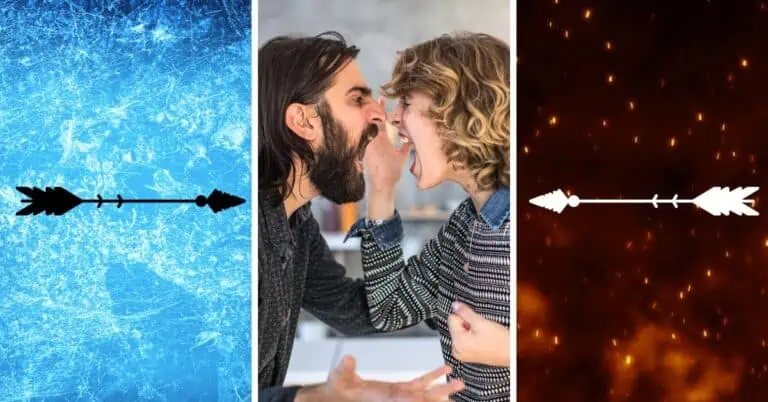

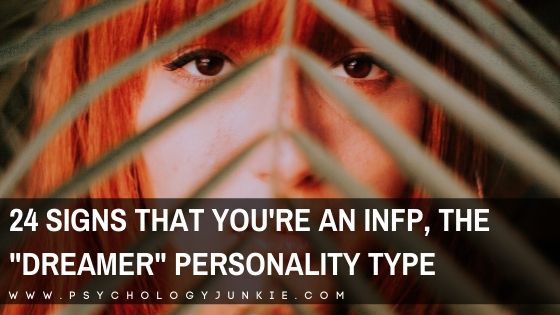
Most things touched my soul it’s exactly how I lived my childhood
Mmm .. no. I am type 5 and I can assure you that there are people in my life- always have been- who are very much out to get me. Literally, and not in any good ways.
I’m not saying you are wrong about what I might need to hear. I’m saying, hearing it now is hearing untruth. My mother who has dementia keeps threatening to kill me and one of my siblings has been calling doctors, Kingdom Halls, individual people, restaurants, etc. and arranging for other people to hate me in unexpected ways that destroyed almost every effort I made to have a decent job, home or family life. And, they are not the only people in my life of that nature.
I’d love to hear it and for it to be true. But, it’s not. I wish you had phrased it a little differently, because, it’s really not all about a child shrinking into being an ISTP and that’s why they are an introvert. I was not a person of fear-based thinking. I’ve always been me. A great deal of people hate that in a person, especially if that person is poorer, younger, more female, of the wrong race or State of origin, who happens to be stronger, faster, more intelligent, a better writer and/or a far more snappy dancer than they. Even more so if that person truly loves God. They seek to destroy that person. I am that person.
Obviously, not all ISTPs are exactly the same. But, I doubt any of them were forced to be introverts by childhood circumstances. It’s part of what we are, not what we were forced to be.
wow if i was in any doubt about being a 4 its now gone amazing like you been following me around.
So, every type internalized a message that was sent to them by their family… Except for the 4, apparently. We are just so delicate that every little thing affects us? Being misunderstood is just a fantasy we’ve convinced ourselves of to feel special, right? That gets old pretty fast, come on.
I was the scapegoat in my family. My parents would ideally want me to remain as such, they’ve been pretty explicit about that. Tell me how that is a minor or imaginary thing, I dare you.
Hi! I just wanted to reach out because I can tell you’re struggling and don’t feel fully represented here. The author of this article, Muna, is also a Four so I know she has a great deal of empathy for the type. In the books on Enneagram, what I’ve read is that the Four felt like a misfit in the family; as if they weren’t understood or didn’t belong. On top of that, if you were also the scapegoat (which Enneagram can’t predict of course) I’m sure that there is a lot of trauma and emotion around your childhood. Enneagram can only tell us a little bit about who someone is, not the whole picture. What you went through was real and nobody is trying to say it’s not. I think what Muna was trying to say is that many times Fours think that by finding a unique identity it will solve the pain of not being understood and they blame themselves for their own hardships when really those may have been completely out of their control. The point was to do things because you want to, not because you have to be unique and separate from others. Wishing you all the very best – I am so sorry you went through the things you did as a child.
Perfect answer Susan. I am a 61 year old number 4
Finally writing composing music just for ME. Im a great audience and its so fulfilling. I thoughtI might erite the next Emmy Award Wimning Broadway Musical but its enpugh if I just do it for the joy and pleasure of it.
I agree. Im a 4.
I’m literally crying WTF
Sophie!! Me too!! Infj 9 over here and that spoke so specifically to me in a time in my life I needed to hear that, well yeah now I’m a bucket of tears too.
The feels
Another 4 here, and while I definitely felt weird and different a lot when I was growing up, I never really blamed myself for the bad things that happened to me. Those references in this article just didn’t resonate with me
How do i find out what number i am from my personality test? thanks
Hi Ric! I have an Enneagram questionnaire that will give you your number here: https://quiz.tryinteract.com/#/5e75808adebd860014771645
I tested as a 4 then later as a 2. I grew up with a narcissistic mother who did scapegoat me. I was the oldest who had to be in charge of my two younger sisters. My mother was abusive and selfish and I tried to stay out of her way. I focused on school as that was my way of surviving. I have been told I’m artistic and an over achiever. I have been married 27 years to a 1 and that has been a challenge. I think I became a 2 during my marriage but I’ve been a 4 the entire time. I do think our experiences can make us come across as different types since we adapt to survive. Our environments do shape us but if we are self aware we make the best of bad situations. I struggle to go easy on myself daily and self care is always first. I tend to take on the energy of others and put them first so it’s vital that I focus on boundaries and self care. It does not make me love others any less. I’m just a healthier person doing so.